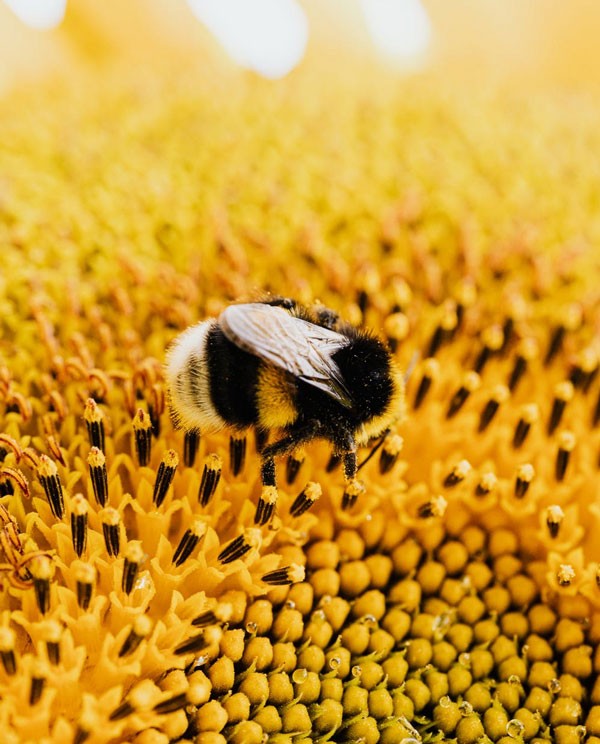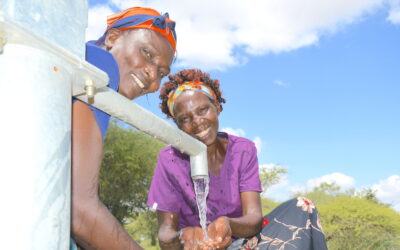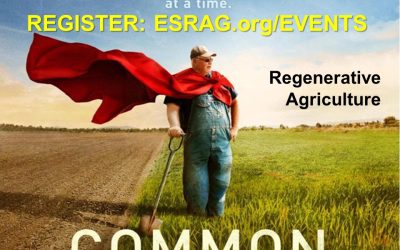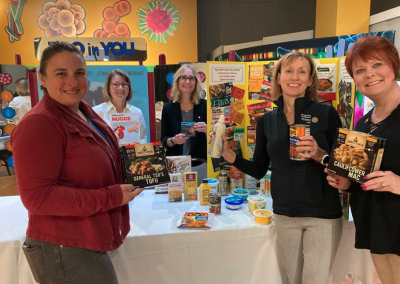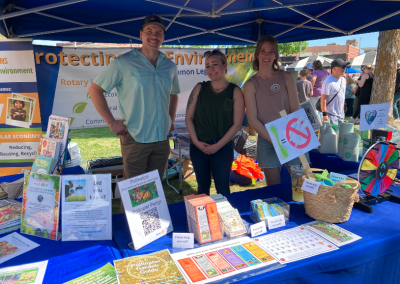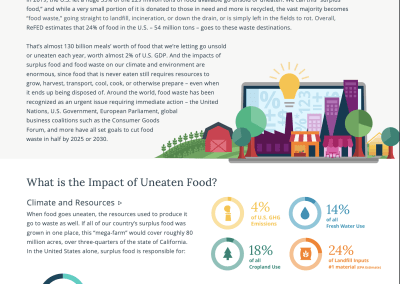THEME
Food Systems
For humans to thrive, our Food Systems must thrive.

WHAT IS IT?
Food Systems at ESRAG
Food is our direct connection to the earth, whether it comes from the land or the oceans and rivers. Currently, 1 of every 8 human beings are starving and 25-30% are food-insecure, but a staggering one quarter to one third of global food production goes to waste, needlessly increasing food insecurity and causing 8-10% of the world’s greenhouse gas emissions. If food waste were a country, it would be the third worst emitter of greenhouse gas emissions of all the nations in the world. Sustainable farming and reducing food waste will have enormous impact both in slowing global warming and increasing world food security. ESRAG is ready to equip your Club with practical strategies to build sustainable food systems. By doing so, you’ll contribute to three UN Sustainable Development Goals: # 2, Zero Hunger; # 12, Responsible Consumption and Production, and #13, Climate Action. The UN has set a goal of reducing global food waste 50% by 2030.
FOOD SYSTEMS
Learn more
Transforming lives and land with Sand Dams
Rotarians are transforming lives and land in drought-stricken regions of East Africa by partnering with Sand Dams Worldwide
Consider your carbon ‘foodprint’
Interest in plant-based diets is growing, in large part, because of concerns about climate change, other environmental impacts, animal welfare, and health.By Michaela Haas Originally created and posted on the Rotary International website.Consider your carbon...
Soil is our common ground; El suelo es nuestro terreno común
Preview a 25 minute clip of Common Ground the Film plus get to ask questions.
Take Action for Food Systems
Rotarians are catalyzing solutions at every stage of the food system where waste and emissions are generated: production, distribution, and disposal. Clubs are teaching regenerative agriculture to increase carbon sequestration in soil, cut farmers’ costs for fertilizer, and reduce agricultural runoff that causes algal blooms in our drinking water supplies. Healthy soil sequesters three times as much carbon as plants.
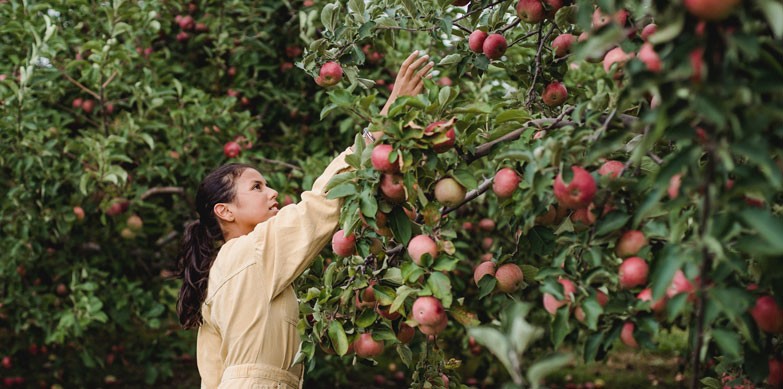
Food Waste
Become a food steward. Reduce greenhouse gas emissions, save resources, save food.

Lunch out of Landfills
Successfully diverting 40 to 60% of landfill designated waste by providing containers for liquids, organics, recycling and trash.
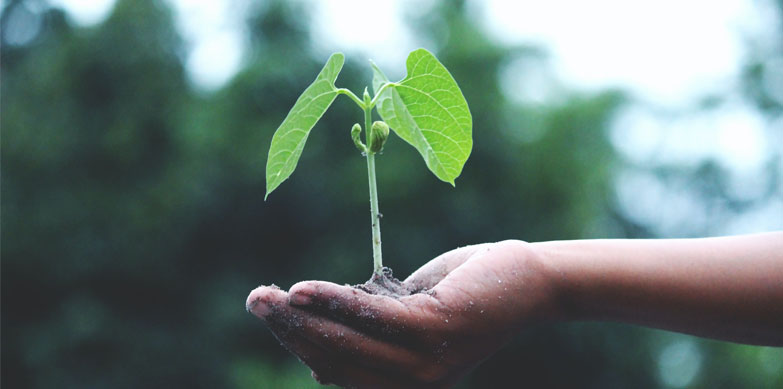
Plant Rich Diet
The Plant-Rich Diet Task Force exists to educate Rotarians and the general public
on the benefits of Plant-Rich Diets to…
FOOD SYSTEMS
Featured Projects
Projects surrounding food systems.
Resources
“It’s clear that agriculture, done right, is the best means
the world has today to simultaneously tackle food security,
poverty and environmental degradation.”
— Irene Rosenfeld
In areas of devastating deforestation and soil erosion like East Africa, Rotarians are incentivizing farmers to plant food-producing trees. These projects rebuild soil and water tables, and generate ongoing revenue for participating families. ESRAG’s Plant-Rich Diet Task Force gives Clubs the resources to promote diet choices that reduce the amount of water needed for farming, prevents deforestation, and reduce greenhouse gas emissions including methane. Clubs are also organizing the recovery and safe redistribution of usable food in partnership with producers, restaurants, and food banks. Rotarians are learning to promote community composting to sequester carbon and improve soils. Lunch out of Landfills is an example of a fast-spreading Rotary program which inspires and equips students to take hugely effective action on both climate and food security.
Are you passionate about agriculture and food? Do you want to play a role in helping ?
Would you like to play a role in helping support and develop projects that create more sustainable Food Systems that create stronger foundations for local communities and wider society?
Then join with us to build out ‘Food Security’ as one of ESRAG’s key objectives.
FOOD SYSTEMS
Featured Events
